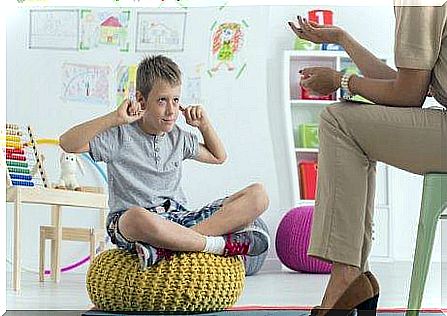Rewarding Children For Their Good Grades – Being Parents

Rewarding children for their good grades can have a negative effect on them. Often, to ensure that children get good grades, parents resort to a system of rewards. Still, is it okay to stimulate kids with rewards to get good grades?
It is very important to give praise, applause and praise your child when he is getting good grades in school. However, never do it with gifts. Your child’s sole responsibility as a student is to study.
Recognize his successes and support him in his failures. Avoid, however, that the end goal is a gift or reward.
Also, you have to take into account that if your child brings good grades, you can reward him by cooking his favorite food, baking a cake to share with the family or going to the movies to see a movie that he likes.
Reward children for their good grades? Advantages and disadvantages.
Remember, material things aren’t the only – or the best – way to reward your child’s effort. Teach him to work. Tell him it will make him happier in the long run rather than getting everything he wants effortlessly.
Benefits
- Reinforce the positive. Rewarding your child for an effort or recognizing them with an ice cream or an extra hour of video games will always be positive. Make sure to further reinforce these positive incentives. You don’t necessarily have to do it with rewards, however.
- Immediate results. Behavior can be influenced quickly and effectively, whether with negative or positive reinforcements. From an early age, your child often responds with actions to these types of methods. The main thing is that this does not become the only way to direct his behavior or to motivate him. Otherwise, its effect may gradually diminish.
- Discipline. You should know that rewarding or punishing behavior is a good alternative to maintaining discipline and good behavior. If you want to shape your child’s behavior, it can work perfectly. However, what happens when there are no punishments or rewards?
Disadvantages
- Removes conviction. Your child’s discipline is based solely on rewards or prohibitions. Thus, the child does not understand the true value of discipline. Indeed, it only meets your conditions to obtain a reward or not to be punished, and not conviction.
- Results by interest. This can happen with school grades. Your child puts rewards before real learning first. Maybe he doesn’t want to be punished or wants to get a new toy. To achieve this, he can copy a practical work or an exam, memorize without learning or cheating.
- Little focus on goals. Whether your child acts for the positive or negative reward, he loses sight of the real purpose. He can focus more on the test result than on what he is doing and learning.

Arguments for and against rewarding children for their good grades
The arguments for rewarding children for their good grades are:
- If you give him a gift, your child will learn that effort and consistency pay off. It is a detail for his work and it will serve as motivation.
- In the event that you give him a gift for his good grades, you need to assess whether it is relevant that they are material objects. Maybe he prefers a congratulations, a hug, a kiss or a gesture of care. It will fill him with satisfaction. Your child will be very happy that you recognize his work and his efforts.
- There is nothing wrong with rewarding your child’s effort. The ideal, however, is that he does not expect it. Thus, he will assimilate it as the result of his work and not as something that he should receive de facto. Therefore, he will be aware of his own steadfastness and investment.
- You can also use the gift as a stimulus when your child begins to stray – if this doesn’t keep him or her unruly up to date. Make him take it as a goal, as a motivation. It is better if it is a daily reinforcement and without material rewards.
The arguments against rewarding children for their good grades are:
- Your child should understand that studying is their responsibility. Getting good grades is very important for your future. Don’t let him get used to getting a reward for his successes.
- Gifts can be counterproductive when your child thinks that in addition to the obligation to study, it is you who should give him a gift at the end of the crusade. If so, he would demand more gifts – each time better.
- The reward cannot be used as an end in itself. Your child may interpret that he has to study to receive something in return. You run the risk that he perceives it as something inherent at the end of the quarter or the year. This will be ineffective if he waits for the gift even if he has bad grades.
- If you promise him a gift if he validates everything, that can also be detrimental. Indeed, if he does not succeed, his feeling of failure will be all the more important.
- It’s most effective if you give it time and affection. Keep in mind that the most precious thing you can leave with your child are values and a foundation for their future adulthood. The material is only fleeting.

You should be aware that sometimes your child may deserve a reward for good grades or a punishment for not doing so. The important thing is that the reward is not the only alternative to motivate him to obtain good grades. Indeed, his own conviction of doing things well for himself may be affected.









